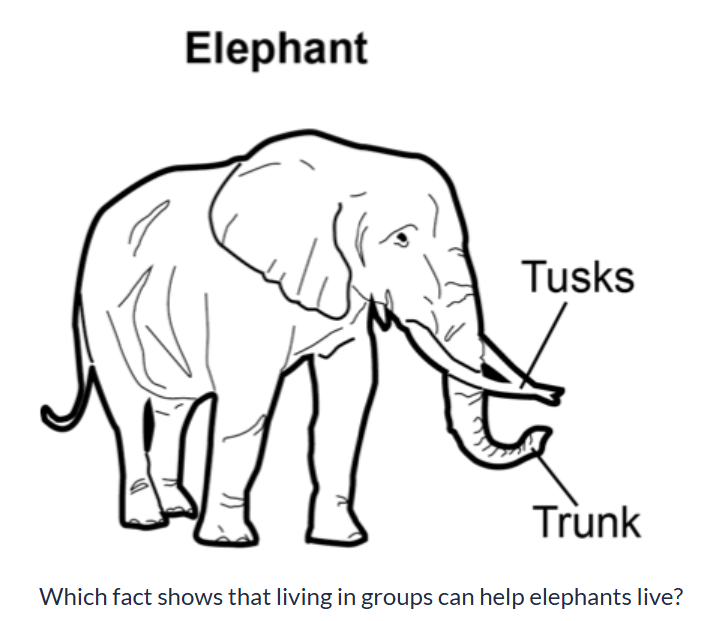What something does.
A. Defense
B. Function
C. Group
B. Function
How does hunting in a group help wolves?
A. Wolves that work together can catch more food.
B. Sometimes a wolf can catch food all alone.
C. The color of the wolves’ fur helps them hide.
A. Wolves that work together can catch more food.
Protection against harm.
A. Function
B. Defense
C. Group
B. Defense
How does living in groups help animals? Animals that live in groups –
A. Can get sick
B. Can protect each other
C. Have more space
B. Can protect each other
A number of individuals gathered together or having some common relationship.
A. Group
B. Function
C. Survival
A. Group
Ants live in groups where many ants live together. How does living like this help the ants?
A. Ants in a large group can share the work of getting food.
B. Birds that eat ants can find a large group of ants more easily.
C. A large group of ants needs more space to live in than one ant.
A. Ants in a large group can share the work of getting food.
A part of a group.
A. Defense
B. Survival
C. Member
C. Member

A. A mother elephant takes care of her baby for the first two years of its life.
B. Elephants can eat up to 300 pounds of bark, grasses, fruits, and roots in one day.
C. Elephants that live alone don’t live as long as the ones that live with other elephants.
C. Elephants that live alone don’t live as long as the ones that live with other elephants.
The process of staying alive and in existence.
A. Survival
B. Member
C. Defense
A. Survival
When zebras are attacked by lions, they will crowd together with the babies in the middle. Why would zebras act in this way?
A. The baby zebras will be able to run faster.
B. The baby zebras are safer from the lions.
C. Lions never attack adult zebras.
B. The baby zebras are safer from the lions.